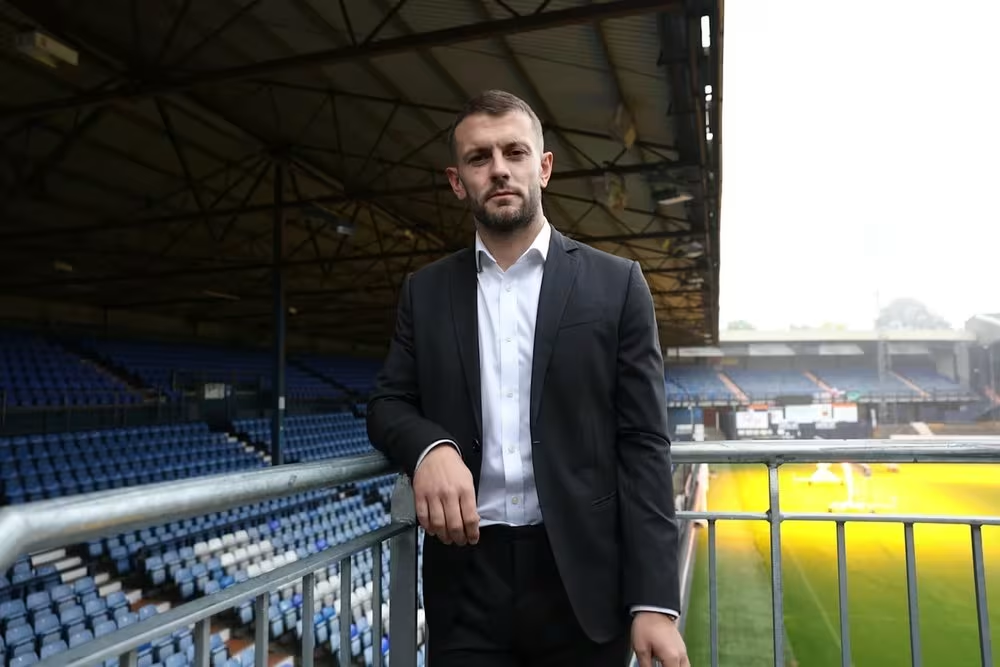Subtotal $0.00
Wilshere’s appointment as Luton’s new manager
Jack Wilshere Luton manager has been confirmed as the new head coach at Luton Town, a bold step in his coaching career. The former Arsenal and England midfielder arrives at Kenilworth Road with a reputation for game intelligence and leadership, traits supporters hope will translate into a clearer, more ambitious path for the Hatters. The appointment signals Luton’s intent to move beyond routine mid-table stability by installing someone who can oversee both development and performance at a high level. Wilshere’s on-field understanding of the game, combined with an emerging coaching philosophy, has impressed directors who want an energetic, modern approach that still respects the club’s values. He will work closely with Chris Powell, who joins as assistant, providing practical experience to complement Wilshere’s strategic thinking.
The club emphasised that this is more than a direction shift; it is a long-term project designed to cultivate a distinctive style. The emphasis is on technical proficiency, proactive pressing, and cohesive team play. While Wilshere is at the start of his managerial journey, Luton’s leadership group believes his experience at the highest levels of football can accelerate development in players and help sharpen recruitment. Fans will be watching closely to see how the plan unfolds on the pitch, with early months focusing on adaptation, discipline, and group identity. For official context and updates, visit the Luton Town official site and BBC Sport.
Powell joins as experienced assistant
Chris Powell joins as Wilshere’s assistant to provide balance, continuity, and a wealth of coaching experience. Powell has spent extensive time in English football, delivering development programmes and guiding squads through challenging campaigns. His appointment is viewed as a stabilising force that will help translate Wilshere’s modern concepts into daily routines, drills, and tactical preparation. The partnership is framed as a true collaboration: the manager sets the long-term vision, while Powell translates it into practical planning, ensuring consistency across training weeks and matchdays. This synergy is seen as crucial for Luton’s ambition to raise standards across the entire squad.
- Proven leadership and clear communication
- Strong track record in player development
- Extensive coaching contacts across English football
Powell’s day-to-day responsibilities will include leading drills that blend technique with high-intensity pressing, arranging video sessions, and overseeing match preparation. His experience in managing groups through diverse conditions is expected to help integrate new ideas with the club’s existing culture. Players are encouraged by the prospect of a duo that combines youthful ambition with seasoned guidance, a combination that could accelerate Luton’s progress in a competitive landscape. For additional context on Powell’s career and outlook, readers can explore profiles and interviews linked on the club’s channels.
Aiming for a modern, identity-driven style
The central objective is a modern, identity-driven style that emphasises technical ability and collective pressing. Wilshere’s philosophy, reinforced by Powell, seeks to develop quick, purposeful passing and aggressive ball recovery when possession is lost. This approach aims to give Luton’s play a recognizable character and make it harder for opponents to anticipate transitions. The emphasis is on players who can think quickly, adapt in real time, and contribute to a cohesive unit rather than operate as individuals. Expect structured positional play, rapid transitions from defence to attack, and a clear framework for how the team builds from the back and advances into attacking zones.
Implementation will require a tight link between scouting, development, and recruitment. The project prioritises players who fit the tactical profile and can grow within a system that rewards technical security and tempo. Academy prospects could be given clearer pathways to the first team, while new signings are sought to reinforce the style. The early months will test whether the squad can absorb the methods taught in training and translate them into consistent performances on matchdays. For ongoing updates on tactical progression, fans can follow official communications and match previews linked from the club’s pages.
Fan reaction and expectations
Reaction from supporters has been broadly optimistic, with many viewing Wilshere Luton manager as a rare opportunity to accelerate the club’s upward trajectory. The combination of on-field intelligence and a forward-thinking coaching ethos has sparked lively discussion on social media and among pundits who see potential for a sharper identity and more frequent pushes into higher league positions. The pairing with an experienced assistant is widely regarded as a balanced formula that can convert potential into results. Enthusiasm is tempered by realism, but the mood is undeniably hopeful that this era could define Luton’s next phase.
Of course, a period of adjustment is inevitable. Early results will be closely scrutinised, and questions will arise about transfer strategy, contracts, and how the squad can be reshaped to suit the new style. Fans and analysts will monitor progress through official briefings, video analysis, and press conferences as the project unfolds. While patience is required, the aspiration remains clear: a club identity that resonates with supporters and translates into tangible gains on the league table. Updates and fan engagement will be available through the club’s communications channels, including social feeds and matchday content.
What the new leadership means for Luton’s future
Taken together, the appointment of Wilshere Luton manager and Powell as his assistant signals a bold, structured approach to Luton’s future. The leadership aims to move beyond mid-table stability and pursue sustained improvement, underpinned by a defined playing style that can be coached, evaluated, and refined. The plan envisions a more coherent pipeline from academy to first team, with recruitment aligned to a clear tactical identity and long-term development goals. The club hopes this clarity will foster higher standards across training, performance, and culture, ultimately lifting Luton’s competitive standing in English football.
Looking ahead, Luton’s leadership has signalled transparent timelines for targets, a formal short-term plan, and regular updates to supporters. The calendar of training blocks, friendlies, and competitive fixtures will be designed to accelerate the adoption of new methods while maintaining stability for players. Expect announcements concerning player pathways, potential signings, and the alignment of scouting with the identity project. Although every transition carries uncertainty, the direction is unmistakable: growth through modern football principles, with a clear identity that can drive Luton’s journey up the divisions. For ongoing coverage, keep an eye on official posts and credible outlets linked from the club’s site.
Outbound references and further reading: Luton Town official site, BBC Sport.
















